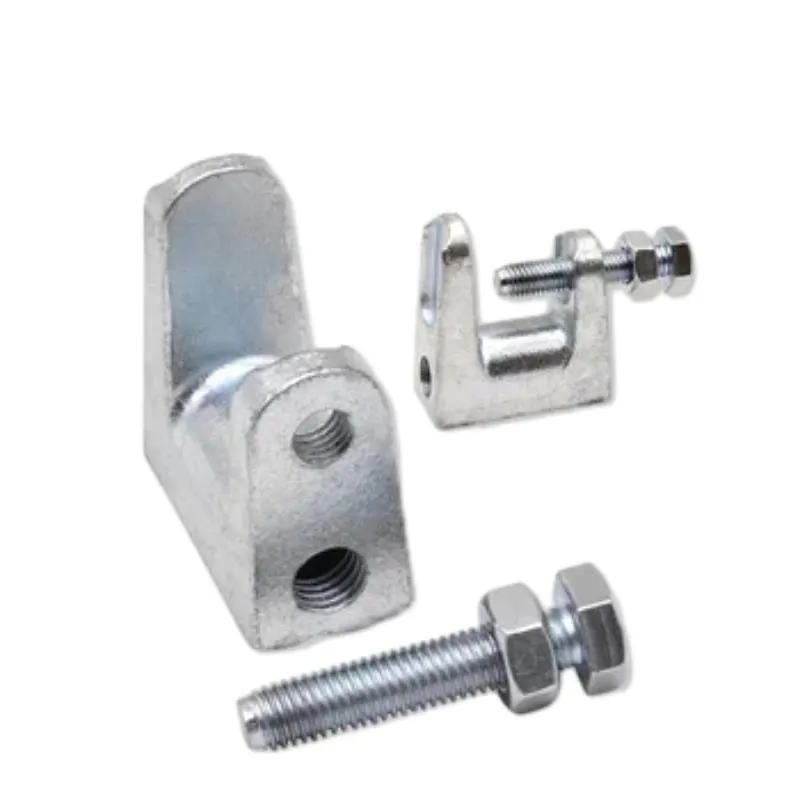Lis . 08, 2024 17:19 Back to list
bolt size 8.8
Understanding Bolt Size and Grade 8.8 A Comprehensive Guide
In the world of mechanical engineering and construction, the selection of the right fasteners is critical for the integrity and performance of any structure or machinery. One of the most commonly used fasteners is the bolt, and within the extensive array of bolts available, the Grade 8.8 bolt holds a prominent position. This article will delve into the specifics of bolt size and what makes the Grade 8.8 an essential choice in various applications.
What is a Bolt?
A bolt is a type of fastener that consists of a head and a threaded shaft, designed to be inserted through an object and fastened with a nut. Bolts can be made from a variety of materials including steel, stainless steel, and other alloys, and they come in different sizes, shapes, and grades. The size of a bolt refers to its diameter and length, which determines its suitability for taking loads in a specific application.
Understanding Bolt Size
Bolt size is categorized typically by its diameter, length, and sometimes the thread type and pitch. The diameter of a bolt is crucial as it influences the load-bearing capacity. Common sizes for metric bolts include M5, M6, M8, M10, and so forth, where the number represents the diameter of the bolt in millimeters. For instance, a M8 bolt has a diameter of 8 mm. Length is measured from the bottom of the head to the tip of the bolt shaft, usually in millimeters as well.
Choosing the right bolt size is essential. An undersized bolt may stretch and fail under load, while an oversized bolt can lead to damage to the materials being fastened.
The Importance of Bolt Grades
Bolt grades indicate the material strength and hardness of the bolt. This classification system ensures that engineers and builders can select a bolt that meets the required strength for their specific application.
Grade 8.8 Bolts
bolt size 8.8

The Grade 8.8 bolt is one of the most commonly utilized classes within the metrics system. It is made from medium carbon steel that is quenched and tempered, allowing for a good balance of strength and ductility. The designation 8.8 is significant; the first number (8) indicates the minimum tensile strength of the bolt, which is 800 MPa, while the second number (8) refers to the yield strength, which is at least 640 MPa—this implies that Grade 8.8 bolts can withstand significant stress before deforming.
Applications of Grade 8.8 Bolts
Grade 8.8 bolts are widely favored in situations where durability and strength are paramount. They are often used in the automotive industry for constructing chassis and critical components, in machinery where heavy vibrations might loosen other bolts, and in construction for various structural applications. Their resistance to high stress and ability to maintain performance under demanding conditions make them versatile and reliable fasteners.
Advantages of Grade 8.8 Bolts
1. High Tensile Strength With a tensile strength of 800 MPa, Grade 8.8 bolts can handle significant loads. 2. Cost-Effective While they are stronger than lower-grade bolts, their cost remains reasonable, making them an economical choice for many applications.
3. Versatility The wide range of sizes and availability means that they can be used across various sectors from automotive to aerospace.
4. Good Ductility Unlike some harder bolts, Grade 8.8 bolts can withstand certain bending moments without breaking, adding a layer of reliability.
Conclusion
Understanding the significance of bolt size and grade, particularly Grade 8.8, is vital for engineers, builders, and DIY enthusiasts alike. By ensuring the correct specifications, one can maintain the integrity and safety of any project or product. Whether it's a small machine or a large building, the component that holds it together often lies in the unassuming yet powerful nature of its bolts. Choosing wisely, therefore, is not just about strength, but also about the longevity and safety of the overall design.


